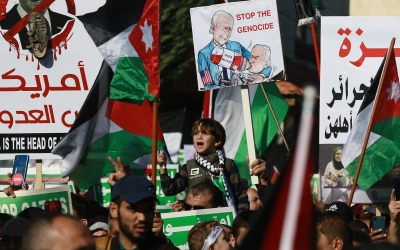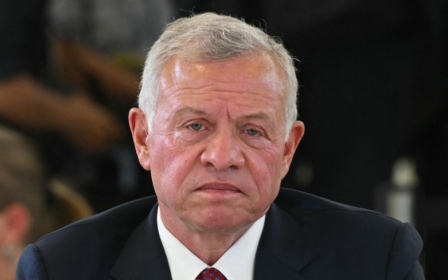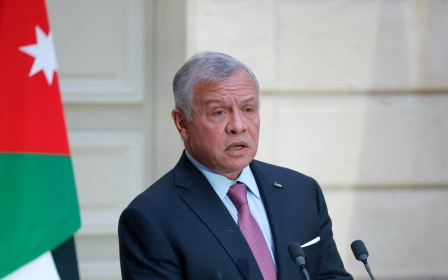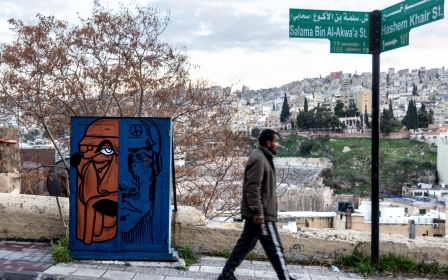Jordan: Islamic opposition makes large gains in parliamentary elections
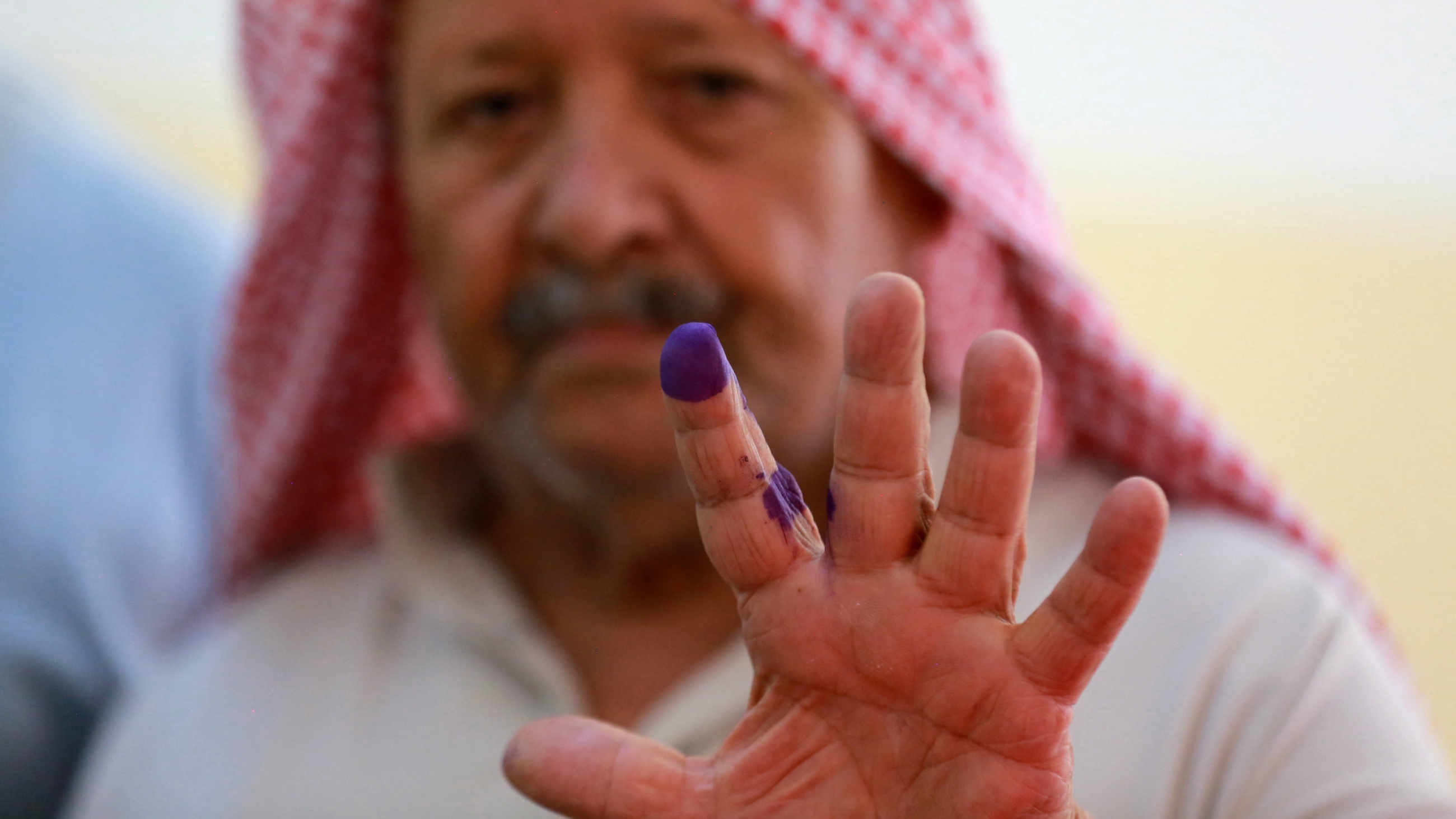
The Islamic Action Front (IAF) has made significant gains in Jordan’s parliamentary elections, as preliminary results on Wednesday showed the largest opposition party winning 32 seats so far.
Jordanians voted on Tuesday in the first general election conducted under a new electoral law designed to allow political parties to play a bigger role in the 138-seat parliament that has long been dominated by tribal and pro-government factions.
The IAF, the political arm of the Muslim Brotherhood, won up to a fifth of the seats under the 2022 electoral law, which for the first time allocated 41 seats for parties out of 138.
The revamped law is meant to moderate the tribal hold on power and bolster political parties.
Parliament, however, will remain in the hands of tribal, centrist and pro-government members.
New MEE newsletter: Jerusalem Dispatch
Sign up to get the latest insights and analysis on Israel-Palestine, alongside Turkey Unpacked and other MEE newsletters
Preliminary figures showed the Islamic Action Front winning 18 seats on the party list, after half a million votes were counted, and 14 seats on local lists, including in tribal regions.
IAF officials said that its local lists are ahead in many governorates, most notably the capital Amman, where it said it won all the quota seats.
Etaf Roudan, a Jordanian journalist, told Middle East Eye that the results favouring the IAF were largely expected.
“They have been political professionals for decades and are well-acquainted with the ins and outs of Jordanian society,” Roudan said.
“Since the election announcement, and even before that, they forged alliances and activated them with influential tribal and societal forces.”
The gains are unprecedented in the party’s history and reflect the current popular mood in Jordan, especially regarding Israel's war in Gaza.
Roudan believes the IAF's political position on the Palestinian issue has pushed leftists, traditional nationalists, and tribal forces to vote for the Islamic party.
Just two days before polling day, tensions with Israel further escalated when a Jordanian gunman, Maher al-Jazi, killed three Israeli guards at the country's border crossing with the occupied West Bank, in the first such attack since the 1990s.
'Confronting Israel's extreme right'
Murad al-Adaileh, secretary-general of the Islamic Action Front, told Middle East Eye that Jordanians have given the party their votes due to its performance in the previous parliament and its stance on the war in Gaza.
The Muslim Brotherhood has led large protests in Jordan, half of whose population is of Palestinian origin, in support of the Palestinians and Hamas, their ideological allies, which has likely increased their popularity.
IAF opponents have said the party has capitalised on popular anger over the war in Gaza.
"The next House of Representatives must be robust in confronting the extreme Israeli right, which may, in the future, align with the extreme American right if Trump wins the US elections," Adaileh said.
"Voters are also seeking solutions to economic problems and a shift from the current approach, which has led to higher unemployment and poverty rates, pushing Jordanian youth to emigrate abroad."
'The next House of Representatives must be robust in confronting the extreme Israeli right, which may, in the future, align with the extreme American right if Trump wins'
- Murad al-Adaileh, Islamic Action Front
Jordan's economic woes have been compounded by the impact of the war on the kingdom's vital tourism sector and a public debt nearing $50bn. Meanwhile, unemployment hit 21 percent in the first quarter of this year.
Looking ahead, Dima Tahboub, an IAF MP who won a seat on the national list, told MEE that the opposition's approach in the new parliament will reflect the grave regional crisis and its impact on the country, as well as internal political and economic challenges.
“We will implement our economic plan, 'Jordan 2030,' that addresses many of the economic concerns of the Jordanian people," she said.
Despite the IAF gains, the elections were marked by widespread voter apathy with initial official figures showing that turnout amongst the 5.1 million eligible voters across 18 electoral districts was 32 percent, slightly higher than 29 percent achieved in the last election in 2020.
Official results are expected to be declared this evening, after the results of the nine remaining local districts are announced.
Middle East Eye delivers independent and unrivalled coverage and analysis of the Middle East, North Africa and beyond. To learn more about republishing this content and the associated fees, please fill out this form. More about MEE can be found here.


